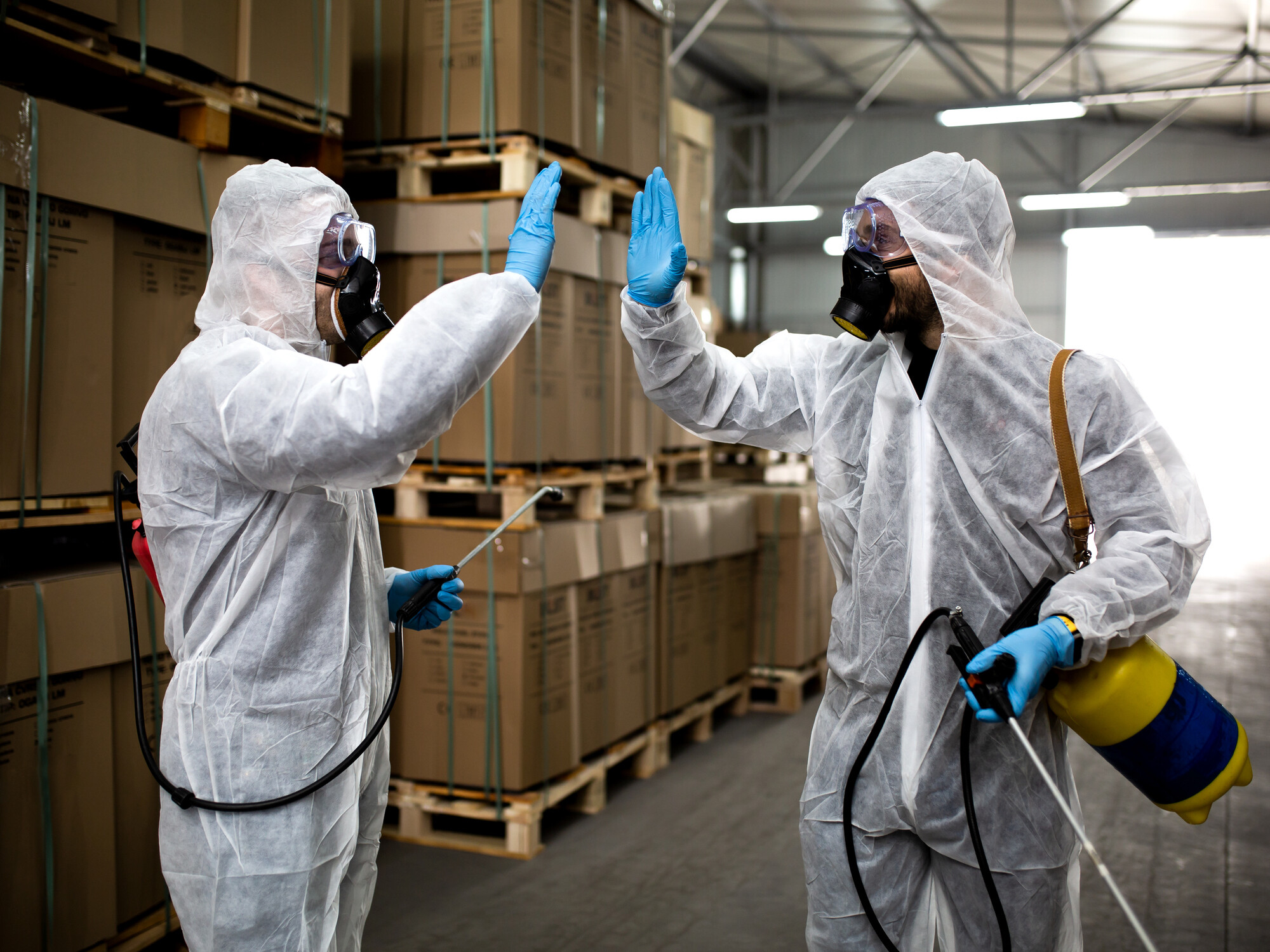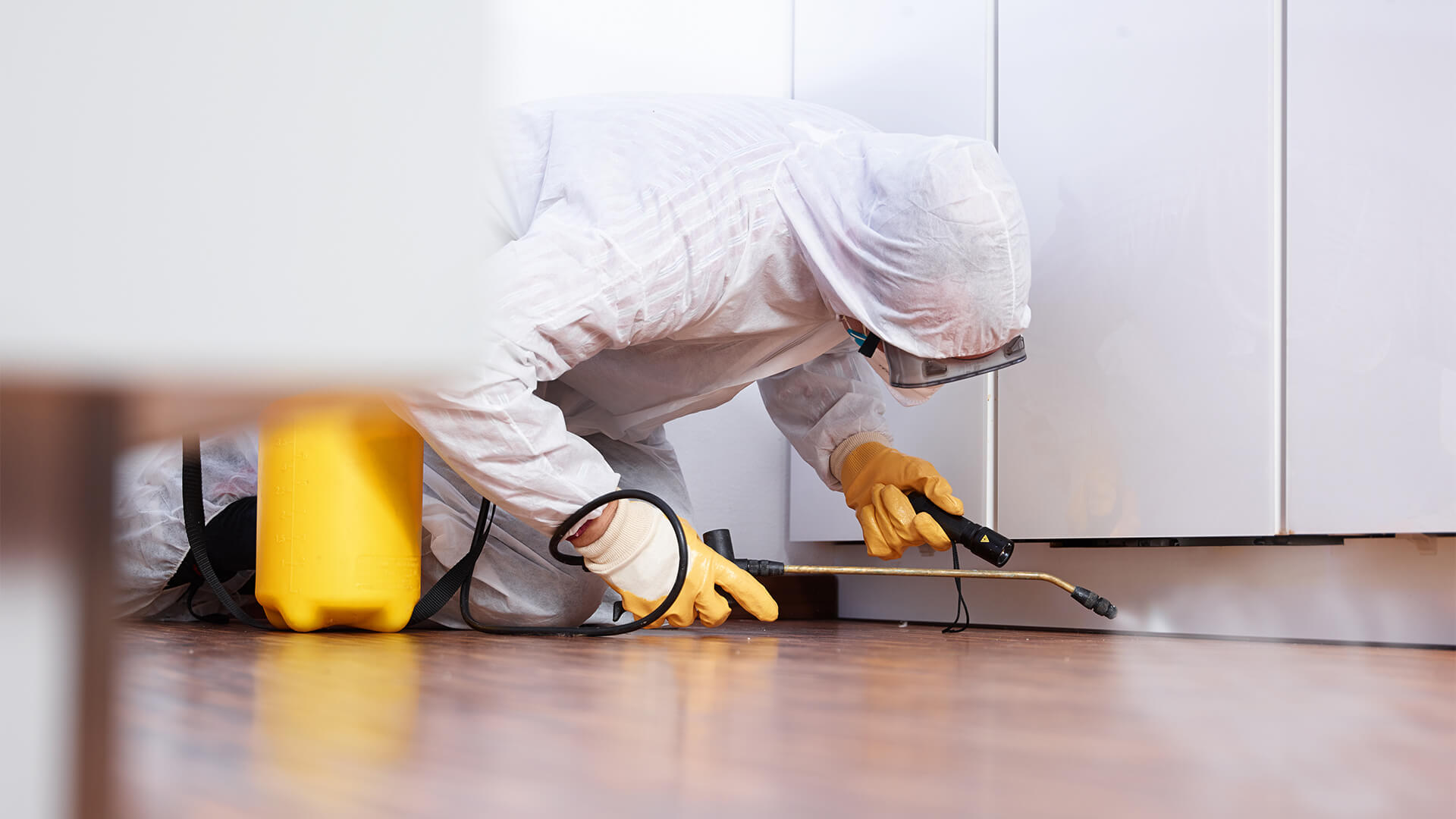an extensive self-help guide to different Types of Pest Control practices
Pest control management is an important aspect of sustaining an excellent and livable planet, whether it's within our houses, landscapes, or work environments. Utilizing the many pest control management practices available, it can be overwhelming to find the most effective answer for a particular pest problem. From substance and biological strategies to real and natural alternatives, each approach possesses its own special skills and restrictions. Contained in this thorough tips guide, we're going to check out these several types of pest control techniques, providing ideas in their programs and benefits. By the end, you will have a clearer comprehension of which strategy could be the most useful fit for your pest control management requirements. Therefore, let's dive to the interesting field of pest control and uncover the secrets to a pest-free planet.
Chemical Pest Control Methods

One usual style of substance pest control management is actually pesticides. Pesticides are compounds which are particularly developed to destroy or repel bugs. They may be applied in a variety of kinds, for example sprays, baits, or dusts. Insecticides target specific pests, such mosquitoes, termites, or ants, and may be applied both inside and outside.
Another kind of chemical pest control is rodenticides. They are chemical substances built to get a handle on communities of rats, such as for instance rats and mice. Rodenticides are generally included in bait form, which pulls the rats or rodents immediately after which kills them after intake. They are widely used in agricultural settings, along with residential and industrial buildings.
Weed killers, also known as herbicides, tend to be another type of substance pest control strategy. Herbicides are made to selectively destroy unwanted plant life, acknowledged weeds, without causing injury to desirable plant life. These include widely used in agriculture, gardening, and gardening to manage the rise of undesirable plant life.
While chemical pest control practices is generally highly effective in doing away with insects, it is vital to use them judiciously and follow security directions. Overuse or misuse of chemical pesticides or herbicides have negative impacts on human health and the surroundings - Pest control near me. For that reason, it is very important to use these processes sensibly and start thinking about alternative pest control strategies whenever you can
Biological Pest Control Management Practices
Biological pest control management strategies involve the effective use of residing bacteria or organic compounds to handle and control bug communities. Unlike substance strategies, which regularly use artificial pesticides or herbicides, biological control techniques make use of the normal opponents of insects to manage their own populations. This method is known as a lot more environmentally friendly and sustainable, as it decreases the usage of harmful chemical compounds and reduces the possibility of pesticide resistance.
One widely used biological pest control management strategy is the introduction of natural predators or parasitic organisms. Including, ladybugs are introduced to regulate aphids, while specific wasp species tend to be revealed to focus on caterpillars. These predators and parasitic organisms feast upon pests, decreasing their own numbers and stopping infestations.
Another biological control method is the usage pathogens. Particular bacteria, infections, and fungi may be employed to infect and eliminate particular insects. For-instance, the bacterium Bacillus thuringiensis is often used to get a grip on caterpillars, as it creates contaminants which can be lethal to those insects.
Biological control techniques also can entail the aid of pheromones or normal compounds that disrupt the mating designs of bugs. Pest control near me. By curbing their particular replica, these processes help to lessen bug communities with time
While biological pest control strategies are efficient, they could call for lengthier times to attain desired outcomes when compared with chemical methods. In addition, careful consideration ought to be fond of the choice and release of natural enemies to prevent unintended damage to advantageous organisms or ecosystems.
Physical Pest Control Methods
To successfully manage and get a handle on bug populations, choice pest control management techniques named physical pest control management strategies are employed. These processes involve employing actual barriers, barriers, or devices avoiding pests from opening or harming house. One common real pest control technique is the use of displays or nets to keep bugs from structures or gardens. These screens are generally made from great mesh product that allows for ventilation while avoiding pests from entering. Another actual pest control strategy is installing walls or walls to help keep bigger insects, such as for example deer or rabbits, of home gardens or agricultural fields. These barriers actually prevent the insects' use of the spot, decreasing the potential for damage. Also, barriers and units can be used to catch or repel bugs. For example, sticky barriers can be placed in places where pests tend to be difficulty, and bugs come to be trapped to the adhesive surface. Ultrasonic devices can also be used to emit high-frequency sounds which are unpleasant to pests, causing these to keep place. Real pest control management practices tend to be an environmentally friendly substitute for chemical pesticides, as they usually do not rely on the usage harmful chemical substances.
Healthy Pest Control Methods
All-natural pest control management moved here techniques offer a renewable and environment-friendly way of managing and eliminating insects. These procedures prioritize making use of normal substances and biological representatives, minimizing the necessity for chemical pesticides or herbicides that will harm the environmental surroundings and personal health. Just about the most typical normal pest control management techniques is actually biological control. This involves bringing in normal predators or parasitic organisms to prey on or parasitize the bugs. For example, ladybugs in many cases are launched to gardens to manage aphid communities. Another natural strategy is the employment of repellents derived from plants. Specific flowers, for example marigolds, lavender, and peppermint, emit fragrances that repel insects like mosquitoes, flies, and ants. Additionally, cultural control procedures may be employed to prevent and manage pest infestations. This may involve the proper sanitation, normal maintenance, and advertising biodiversity from inside the garden. Eg, spinning vegetation, the removal of yard debris, and encouraging natural predators will avoid the accumulation of bugs. By implementing these organic pest control management strategies, people and communities can properly handle bugs click here to read while minimizing the unfavorable influences on ecosystem and individual health.
Integrated Pest Control (IPM)
Built-in Pest administration (IPM) is a comprehensive and methodical method to pest control management that mixes various strategies and methods to properly control pests while reducing the employment of chemical pesticides or herbicides. IPM will maintain bug populations underneath the financial injury amount through the use of a mix of social, biological, and chemical control practices.
Social control methods include modifying the environmental surroundings making it less beneficial for bugs. This could include techniques such as for example crop rotation, the proper sanitation, together with utilization of resilient plant types. By generating bad circumstances for pests, social control practices can notably lower pest populations.
Biological control practices involve using organic opponents, particularly predators, parasitic organisms, and pathogens, to control insects. These natural opponents help regulate bug communities by feeding on or infecting them. By exposing and boosting populations of advantageous organisms, biological control strategies can effectively suppress pests.
Chemical control techniques are widely-used as a final hotel in IPM. They include the specific and judicious using pesticides or herbicides to handle bug communities. Unlike conventional pest control methods, IPM aims to minimize the use of substance pesticides or herbicides by utilizing renewable methods.

Conclusion
In official source closing, this post has provided an extensive overview of various types of pest control management techniques. It talked about chemical, biological, bodily, and organic pest control techniques, as well as the incorporated bug management approach. By comprehending these different methods, individuals make informed decisions upon which pest control management method is most appropriate with regards to their certain requirements and preferences. Successful pest control is extremely important in maintaining proper and pest-free ecosystem.